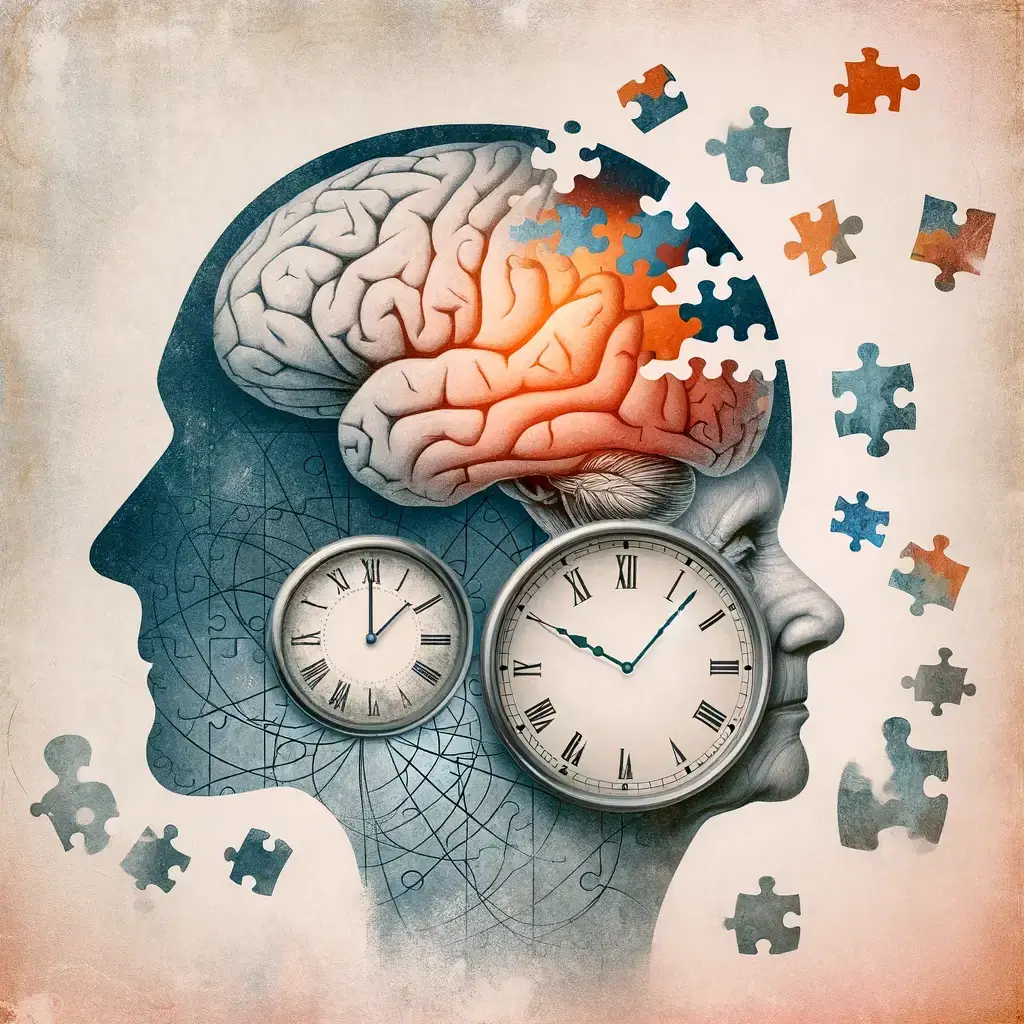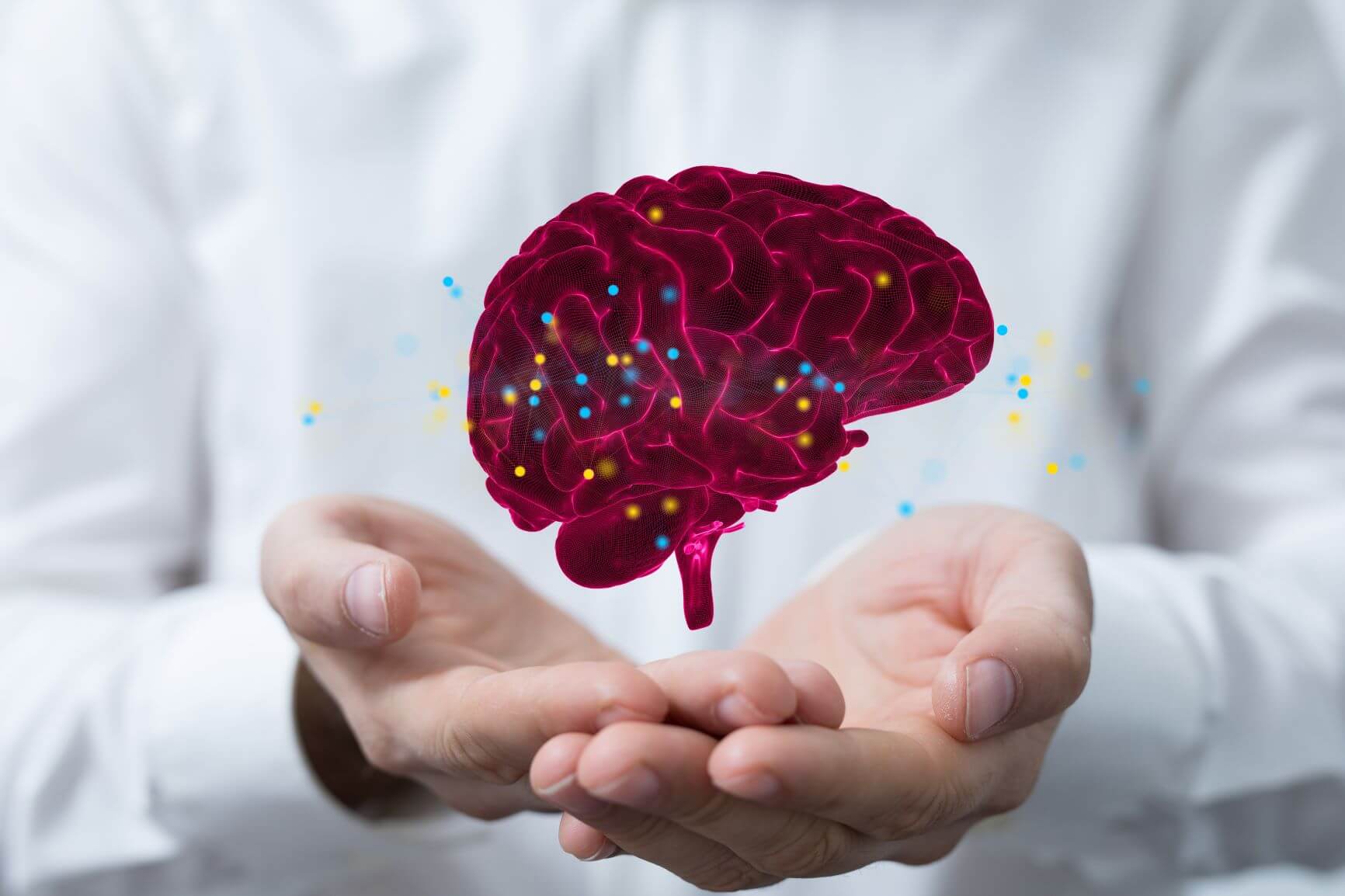The natural aging process is accompanied by many processes and changes, including changes in our cognitive function. Cognition is a broad concept that includes all the mental processes related to the acquisition, processing, storage and use of information. Changes in cognitive function affect almost all aspects of our lives – our memory may be less sharp, attention may be scattered, and planning and organizing complex things can become a challenge. It is important to remember that certain cognitive changes in the third age are natural and normal. We all age, but it is important to remember that there are individual differences in aging, and different people will age at different rates. Genetics is a significant factor that affects our lifespan and the functioning of the body’s systems, but most of the changes we experience throughout our lives are the result of an interaction between the genetic load we were born with and the environmental conditions in which we live. Our lifestyle, starting with nutrition and fitness habits, to the air we breathe affects our physical and mental aging. Most changes in cognitive function with age are natural and expected. However, a decrease in cognitive function may, of course, also be a sign of a health condition that requires diagnosis and treatment. A good understanding of the changes we experience, the reasons for them and the differences between them and the warning signs of acute cognitive decline, will allow us to manage realistic expectations and take a proactive approach to maintaining normal cognitive health and a good quality of life in the third age.
With aging it is common to notice changes in memory. Many people feel that they have difficulty recalling familiar information, or that it takes them longer to retrieve information from memory. Behind the scenes, the changes that occur in the memory system are complex, and different components of it are affected in different ways by aging. For example, semantic memory, which is a memory of acquired knowledge such as language or facts that are not linked to experiences, does not see a significant deterioration with age. Compared to this, in episodic memory, which is the memory of personal experiences in a unique context, a decrease in performance is often seen compared to young people. Another aspect in which difficulty develops with aging is the formation of new memories, and short-term memory, such as remembering names or phone numbers.
Another significant cognitive function is attention. It is customary to divide the auditory system into three components: auditory arousal, which is a state of auditory alertness towards a stimulus, spatial attention, when we direct our attention to a specific place in space, and executive attention, which is responsible for high cognitive control, and allows us to regulate our reactions and overcome conflicts. For example, if every day we drive to work on the same route, and one day we make a stop somewhere else – we need to consciously deviate from the fixed route to the new route. A study conducted found that while aging is linked to a decrease in attentional arousal and longer reaction times, older adults showed improvement in spatial attention and executive attention, and could direct attention and ignore distractions more effectively than younger adults.
Normal cognitive function in the third age is influenced by a wide variety of factors. The general state of health, which includes chronic diseases and blood pressure, plays a significant role in the flow of blood to the brain and maintaining its normal function. A healthy lifestyle, which includes a diet rich in vegetables and fruits, regular physical activity, and quality sleep, are all linked to brain health and a lower rate of cognitive decline. Social and intellectual engagement, in the form of meetings with friends, thought-provoking hobbies, and learning activities, contribute to emotional health and mood and are linked to a reduced risk of dementia. In addition, certain hereditary factors affect the risk of neurological diseases, and you should be aware of them and health conditions in the family. A balanced lifestyle that takes care of the health of the body and mind contributes to the preservation of cognitive abilities and brain health in the third age.
As mentioned, a certain decline in cognitive function is natural and expected, but it is important to pay attention to unusual changes and seek help if necessary. It is important to understand the differences between normal cognitive changes in the third age and warning signs of dementia to maintain cognitive health in old age. There is no reason to worry if we lose our keys every now and then, forget for a moment what day it is, miss a task we had to do, or if it is more difficult to handle multitasking – these are natural memory problems associated with age. But if a regular and more frequent pattern of difficulty finding objects, getting lost in familiar places, repeating the same questions over and over again, or significant difficulties in managing day-to-day life occurs, talk to a doctor for help. Other signs are changes in personality, difficulty speaking, and paying attention. It is important to remember, early diagnosis allows adjustments and targeted treatments that can improve the quality of life and delay deterioration.
Aging is a natural process accompanied by many changes, including changes in cognitive function. It is important to remember that certain cognitive changes in the third age are natural and normal, and are not a sign of dementia or another medical condition. However, it is important to maintain good physical and mental health. Despite the changes that occur in the brain with aging, even in old age the brain continues to make new connections and develop. Cognitive training for the brain may help us preserve and even improve cognitive abilities for both memory and attention, and assist in the production of new and more effective strategies for memory. Training can be an effective tool for strengthening cognitive functions and improving the quality of life through activities that stimulate and challenge the brain, such as thinking games, puzzles, reading, learning new languages, and more.
When choosing the appropriate dedicated training for us, it is important to make sure that the training will continue to challenge us over time. For an optimal effect of training, make sure to vary and work on different aspects of cognitive function, such as brain memory, attention, and processing speed. While playing sudoku can be fun and challenging, and works on identifying patterns and logic that activate different cognitive functions, by itself it is not satisfactory as a comprehensive cognitive workout. In recent years there has been an ever-expanding research around cognitive training software. Studies by the US National Institute on Aging (NIA) have shown long-term positive effects of cognitive training on various cognitive abilities that were evident even a decade after the end of the training program. Computerized cognitive training allows adjustment of the training program to the trainee, and adjustment of the level of difficulty to create a continuous challenge to get the best out of the training. Effectivatee’s unique training program was developed in collaboration with brain researchers and neuropsychologists. It consistently and continuously adapts to the users’ performance, while ensuring a balanced training of a wide range of cognitive abilities. Beyond training, the software provides enrichment content from experts in the field of cognition designed to help train new strategies to optimize memory. A study that examined the effects and benefits of using the system found that training in the software resulted in an improvement in cognitive abilities that the software does not train.
With a good understanding of the normal cognitive changes in the third age, managing realistic expectations, and taking proactive approaches to maintain good physical and mental health, it is possible to continue to maintain normal cognitive function even in the third age.










